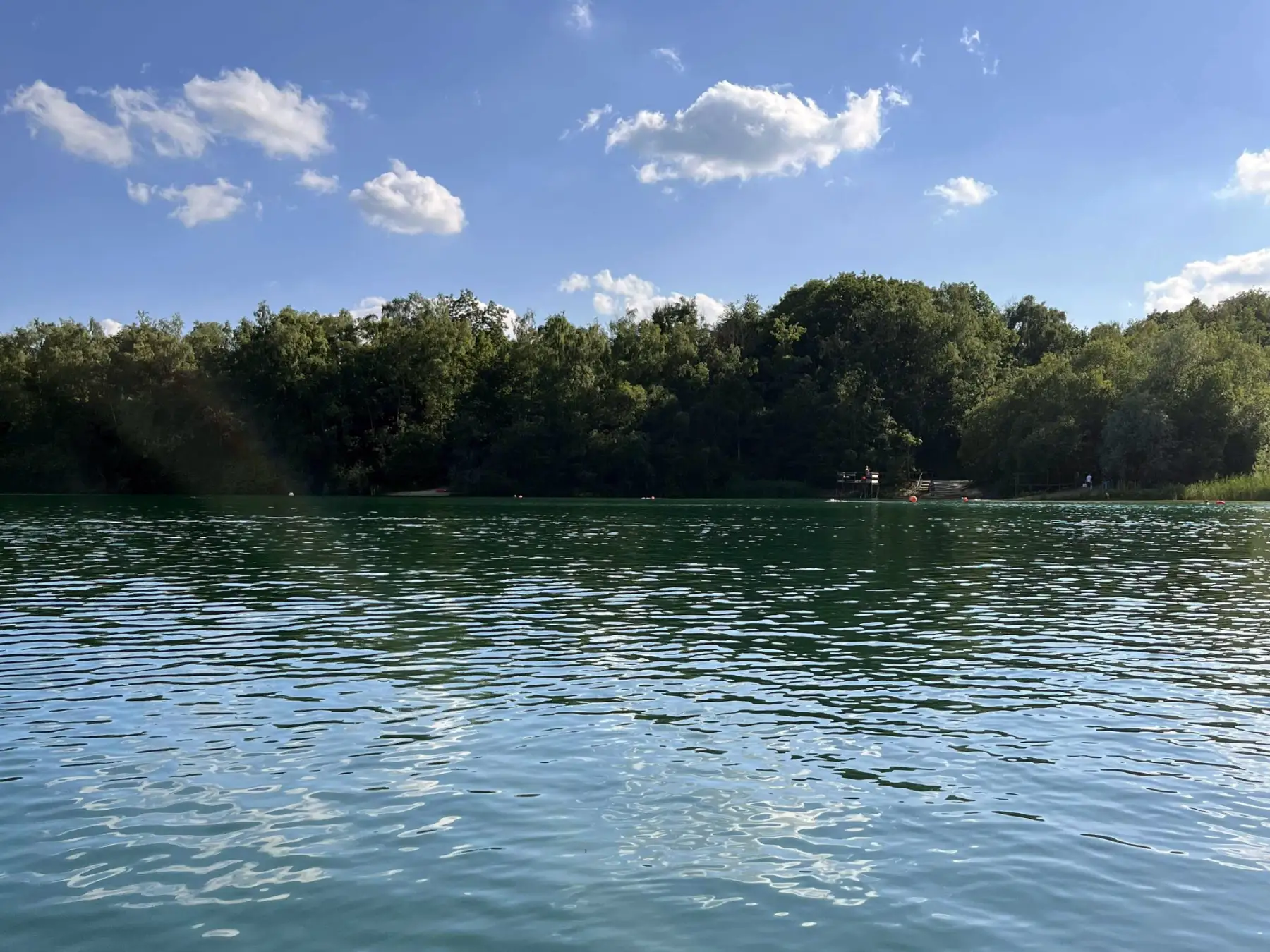The Ultimate Guide to Safe and Invigorating Open Water Swimming
.avif)
Are you ready to embark on a thrilling adventure and dive into the world of open-water swimming? If you're seeking an exhilarating outdoor activity that combines the beauty of nature with the benefits of exercise, then cold water swimming might just be the perfect fit for you. In this blog post, we’ll explore the wonders of open-water swimming, the benefits it offers, and how to ensure a safe and enjoyable experience.
So grab your swimwear and let's dive in!
What is Open Water Swimming?
Open water swimming involves immersing yourself in natural bodies of water such as lakes, rivers, and oceans, as opposed to swimming in a pool.
This liberating and refreshing hobby has seen a massive surge in popularity in recent years, due to promoting a connection with nature whilst reaping the numerous health benefits that come with it.
The Benefits of Open Water Swimming
1. Cold Water Therapy for Body and Mind
One of the most intriguing aspects of open water swimming is the therapeutic effect that cold water has on both the body and mind. Cold water immersion promotes the production of endorphins, which are natural mood boosters. It can help reduce stress, anxiety, and depression, leaving you feeling rejuvenated and invigorated.
2. Improved Cardiovascular Health
Open water swimming is a fantastic cardiovascular workout that gets your heart pumping and your blood flowing. The cold water stimulates your body to work harder to maintain its core temperature, resulting in increased heart rate and calorie burn. This, in turn, strengthens your cardiovascular system, improves circulation, and enhances overall heart health.
3. Enhanced Immune Function
Regular open water swimming has been shown to strengthen the immune system. Exposure to cold water stimulates the production of white blood cells, which play a crucial role in fighting off infections and diseases. Over time, your body becomes more resilient and better equipped to handle changing conditions, leading to a stronger immune system.
%20(1).avif)
4. Boosted Mental Well-being
Open water swimming provides a sense of freedom and liberation that can have a profound impact on your mental well-being. The combination of being surrounded by nature, the release of endorphins, and the meditative qualities of swimming can help reduce anxiety, improve focus, and promote a sense of calm and tranquillity.
5. Increased Strength and Endurance
Swimming in open water requires more effort than swimming in a pool due to factors such as currents, waves, and varying water temperatures. As a result, your muscles, particularly your core, arms, and legs, are constantly engaged, leading to increased strength and endurance over time.
6. Social Connection
Open water swimming is not only a solitary activity; it also provides an opportunity to connect with like-minded individuals. Becoming a member at an official open water swimming venue such as Divers Cove allows you to meet new people, share experiences and create lasting friendships with other like minded people.
Thinking of joining us? Discover our memberships to be a part of a friendly community that shares your passion for the water!
Tips for Safe and Enjoyable Open Water Swimming
Now that you're familiar with the incredible benefits of open water swimming, it's important to ensure that you approach this activity safely and responsibly. Follow our top tips to make the most of your open water swimming experience:
1. Find a Suitable Open Water Swim Venue Near You
Searching for an open water swimming venue near you? When it comes to wild swimming, safety should always be your top priority. Look for fully-operated, safe venues with trained open water swimming lifeguards, such as our Divers Cove in Godstone, Surrey. Visiting a safe venue like ours ensures that you have professional support and guidance throughout your swim, giving you peace of mind as you take the plunge.
2. Acclimatize Gradually
If you're new to cold water swimming, it's essential to acclimate your body to the colder temperatures gradually. Start by swimming in water that is above 15 degrees Celsius, such as during the summer or early autumn. As the temperature drops, continue to dip in colder water once or twice a week. This gradual exposure allows your body to adapt and become more comfortable with the cold and has worked well for many of our members previously.
3. Dress Appropriately
Invest in the right gear to keep yourself warm and protected during your open water swims - especially during the winter months. We’d recommend wearing a specialist winter swimming wetsuit which provides insulation and helps maintain body temperature.
Plus, don't forget to wear a brightly coloured swim cap for visibility and neoprene gloves and socks to keep your extremities warm.
4. Plan for Recovery
After your invigorating swim, it's important to get warm! Make sure that you pack warm, comfortable clothes to change into and find a sheltered spot to dry off and warm up. Avoid staying in wet clothes for too long, as this can lead to a drop in body temperature. Many of our members opt to use Dry Robes after their swim to get changed quickly and easily, whilst staying nice and warm.
We’d also recommend having a tasty hot drink such as tea, hot chocolate or coffee to warm yourself from the inside out. We have an on-site cafe that serves a range of delicious food and drinks, perfect for treating yourself after your dip!
5. Swim with Others
Swimming alone in open water is never advisable. Always swim with a buddy or join a proper open water swimming venue such as Divers Cove. This ensures that there is someone to assist you in case of an emergency and adds an element of social connection and support to your swim.
6. Listen to Your Body
Pay close attention to how your body is feeling throughout your swim. If you start to feel excessively cold, fatigued, or experience any discomfort, it's time to get out of the water and warm up. Don't push yourself beyond your limits, especially if you're a beginner. Remember, your safety and well-being are paramount.

7. Be Mindful of Water Conditions
Before entering the water, take a moment to assess the conditions. Check for any potential hazards such as strong currents, rough waves, or poor water quality. Avoid swimming in unfamiliar or unsafe areas, and always respect any warnings or guidelines provided by lifeguards or local authorities.
8. Follow Proper Entry Techniques
To minimise the shock of cold water immersion, enter the water slowly and gradually. Start by splashing your face with water to acclimate your body to the temperature. Wading into the water gradually is better than diving in all at once, allowing your body to adjust to the cold more effectively.
If you're new to open water swimming, it's advisable to keep your head above the surface to prevent any potential complications.
9. Establish Swim Duration Limits
Especially when starting out, it's important to set swim duration limits for yourself. Begin with shorter sessions in the water, gradually increasing the length as your body becomes more accustomed to the cold. As a general guideline during winter, one minute per degree is best until you gain more experience in cold water acclimatisation.
10. Practice Proper Post-Swim Recovery
After your swim, focus on warming up and recovering. Change out of your wet clothes as soon as possible and layer up with warm, dry clothing. Sip on hot beverages to raise your core temperature, and consider engaging in gentle movements or light exercise to promote blood circulation and warm up your muscles.
11. Continuously Improve Your Skills
Open water swimming is a skill that can be honed over time. Consider participating in open water swimming courses such as our Introduction to Open Water Swimming Course to improve your technique, gain confidence, and learn valuable safety tips. Embrace the opportunity to continually expand your knowledge and skills in this exciting sport.
12. Embrace the Adventure
Above all, embrace the adventure and joy that open water swimming brings. Appreciate the beauty of nature, the exhilaration of the cold water, and the sense of accomplishment that comes from pushing your boundaries. Remember to have fun, stay safe, and create lasting memories in the open water.
Take the Plunge
Open water swimming is a remarkable activity that offers a myriad of physical and mental benefits. By following these tips and guidelines, you can embark on a safe and invigorating open water swimming journey. Whether you're a beginner or an experienced swimmer, the wonders of open water await you. So dive in, explore the beauty of nature, and discover the transformative power of open water swimming. Safe travels and happy swimming!

Why Bacon Baps and Post-Swim Chats Are Good for the Soul

The Best Pre-and Post-Dip Snacks for Energy and Recovery

A Beginner's Guide to Acclimatisation for Winter Swimming

